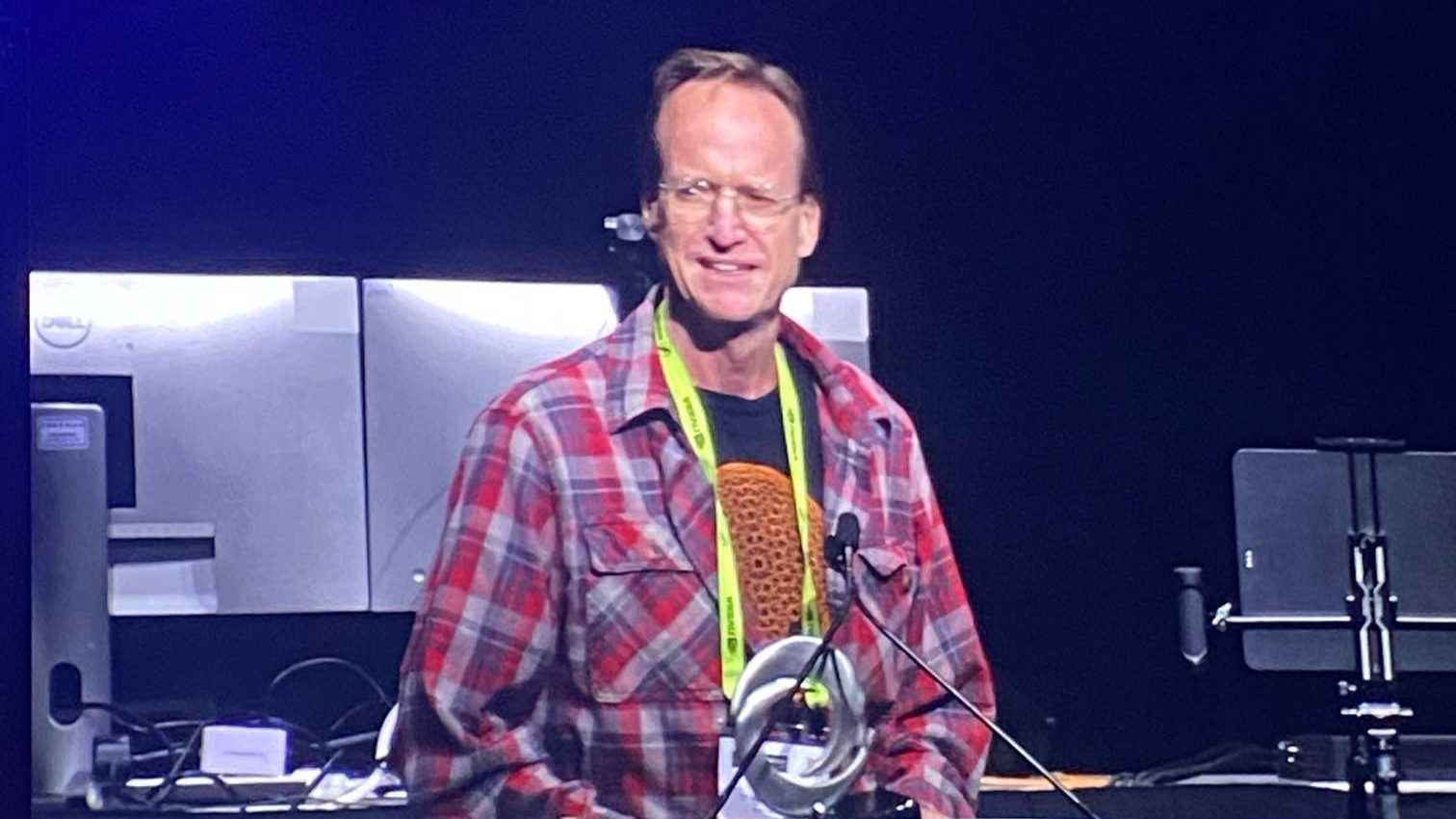
Computer Graphics Technology associate professor Tim McGraw recently received two awards for his presentation, “Mesh Mortal Combat,” at the 2024 SIGGRAPH conference. SIGGRAPH, or the Special Interest Group on Computer Graphics and Interactive Techniques, is one of the longest-lived conferences of its kind and attracts thousands of experts in computer graphics yearly.
McGraw was one of many presenters in Denver, Colorado for SIGGRAPH 2024’s “Real-Time Live!” session. “Real-Time Live!” consists of live demonstrations of interactive graphics techniques in from of an audience of thousands. The show was also livestreamed on Twitch and YouTube. (You can find McGraw’s presentation here.)
Other accepted demonstrations included teams from Nvidia, Microsoft, and startups such as DeepMotion Inc.
After the show, the live audience voted for their favorite demonstration. A jury also awards a Best in Show award. This year, McGraw won both of these awards for "Mesh Mortal Combat: Real-time voxelized soft-body destruction," which demonstrated a fast technique for fracturing meshes.
McGraw’s novel application of voxels (i.e., pixels made into three-dimensional objects) has immediate applications in entertainment graphics for games and other virtual environments.
From the recording of the demonstration, the audience can be heard clapping and laughing along with some of the more baroque displays of physics and imitated gore. One monstrously-sized 3D model of an armadillo seems to bear the brunt of the shame, as McGraw shows how a variety of tools (from simple tensile pressure to a virtual bowling ball) can slice and dice it in a variety of oddly-satisfying ways.
YouTube comments on McGraw’s demonstration are in good humor and praiseworthy; one viewer states “Voxel Violence,” another simply says “I love this.”
Beyond the technique’s uses in gaming and media, it will also have implications for surgical simulation and other interactive simulations of soft tissue and organic structures.
Additional information
- SIGGRAPH 2024: Real-Time Live!
- “A big congratulations…” (from SIGGRAPH on X.com)
